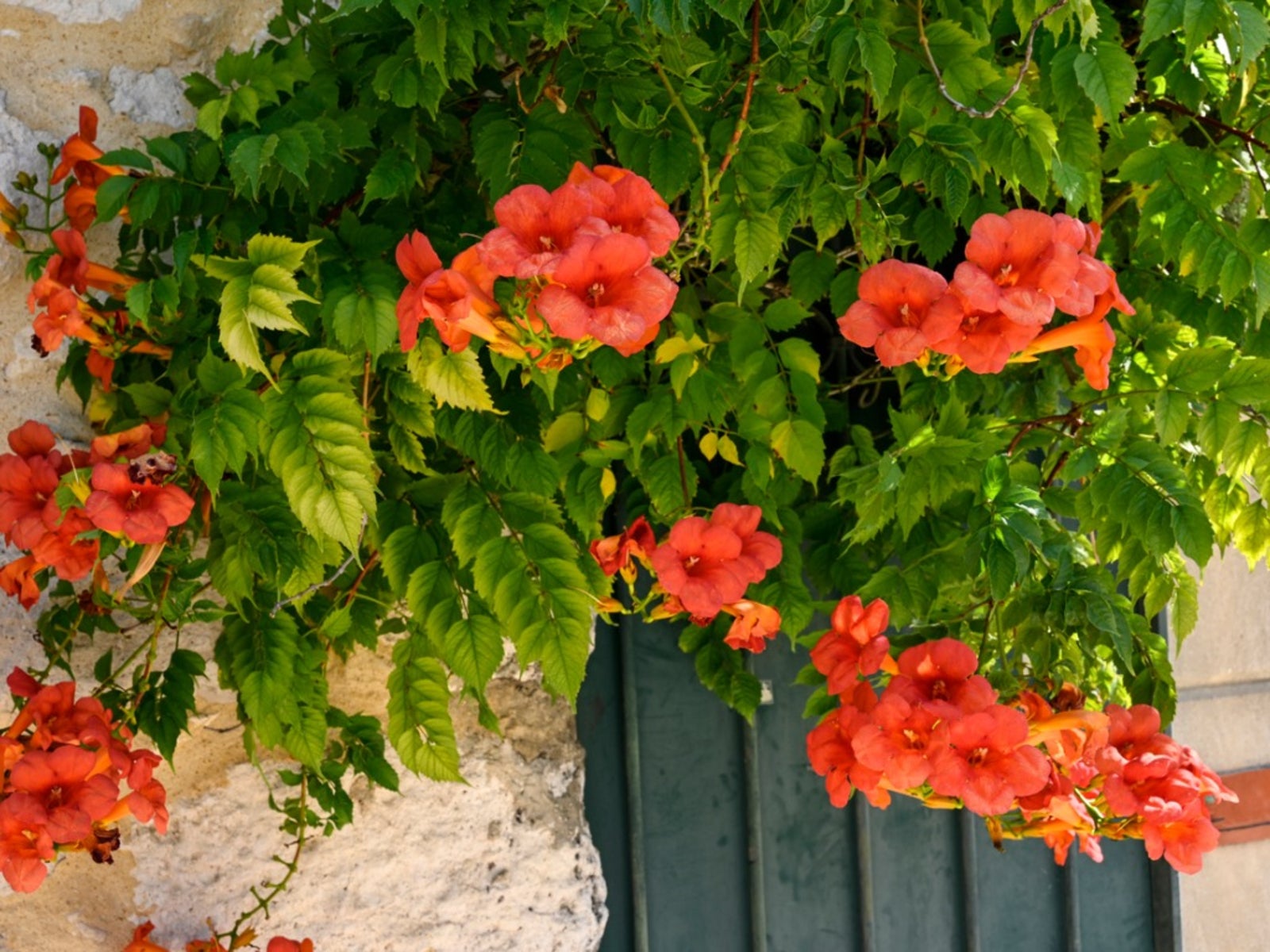Problems With Trumpet Vines – Why Is My Trumpet Vine Losing Leaves


Sign up for the Gardening Know How newsletter today and receive a free copy of our e-book "How to Grow Delicious Tomatoes".
You are now subscribed
Your newsletter sign-up was successful
Why is my trumpet vine losing leaves? Trumpet vines are generally easy-to-grow, problem-free vines, but like any plant, they can develop certain problems. Keep in mind that a few yellowing leaves are perfectly normal. However, if your trumpet vine leaf problems are severe and you notice numerous trumpet vine leaves yellowing or falling off, a little troubleshooting is in order.
Reasons for Trumpet Vine Leaves Falling Off
Heat – Excessive heat may be the reason for trumpet vine leaves falling off or turning yellow. If this is the case, the plant should rebound as soon as temperatures moderate. Insects – Pesky insects, such as scale or mites, may be to blame for problems with trumpet vines. Scale consists of tiny, sap-sucking insects that live under waxy shells. The shells are often seen in clusters. Mites are tiny pests that often make an appearance during dry, dusty weather. Aphids are another type of sap-sucking pest that can cause harm when they gather in large numbers. Scale, mites, and aphids are generally easy to control with regular use of commercial insecticidal soap spray. Avoid pesticides, as the toxic chemicals kill beneficial insects that keep pests in check. Disease – Trumpet vines tend to be disease-resistant, but they can be affected by assorted viruses and fungi that can cause yellow or spotted leaves. The best way to deal with most problems is to keep the plant healthy. Be sure the vine is planted in well-drained soil. Water regularly and watch for aphids, as the sticky sap they leave behind can attract fungi. Remove diseased growth and dispose of it properly. Trumpet vine generally requires no fertilizer, but if the growth appears weak, feed the plant a light application of a low-nitrogen fertilizer. Prune the vine in late winter or early spring. Keeping vines as healthy as possible will help minimize most problems with trumpet vine plants.
Sign up for the Gardening Know How newsletter today and receive a free copy of our e-book "How to Grow Delicious Tomatoes".

A Credentialed Garden Writer, Mary H. Dyer was with Gardening Know How in the very beginning, publishing articles as early as 2007.